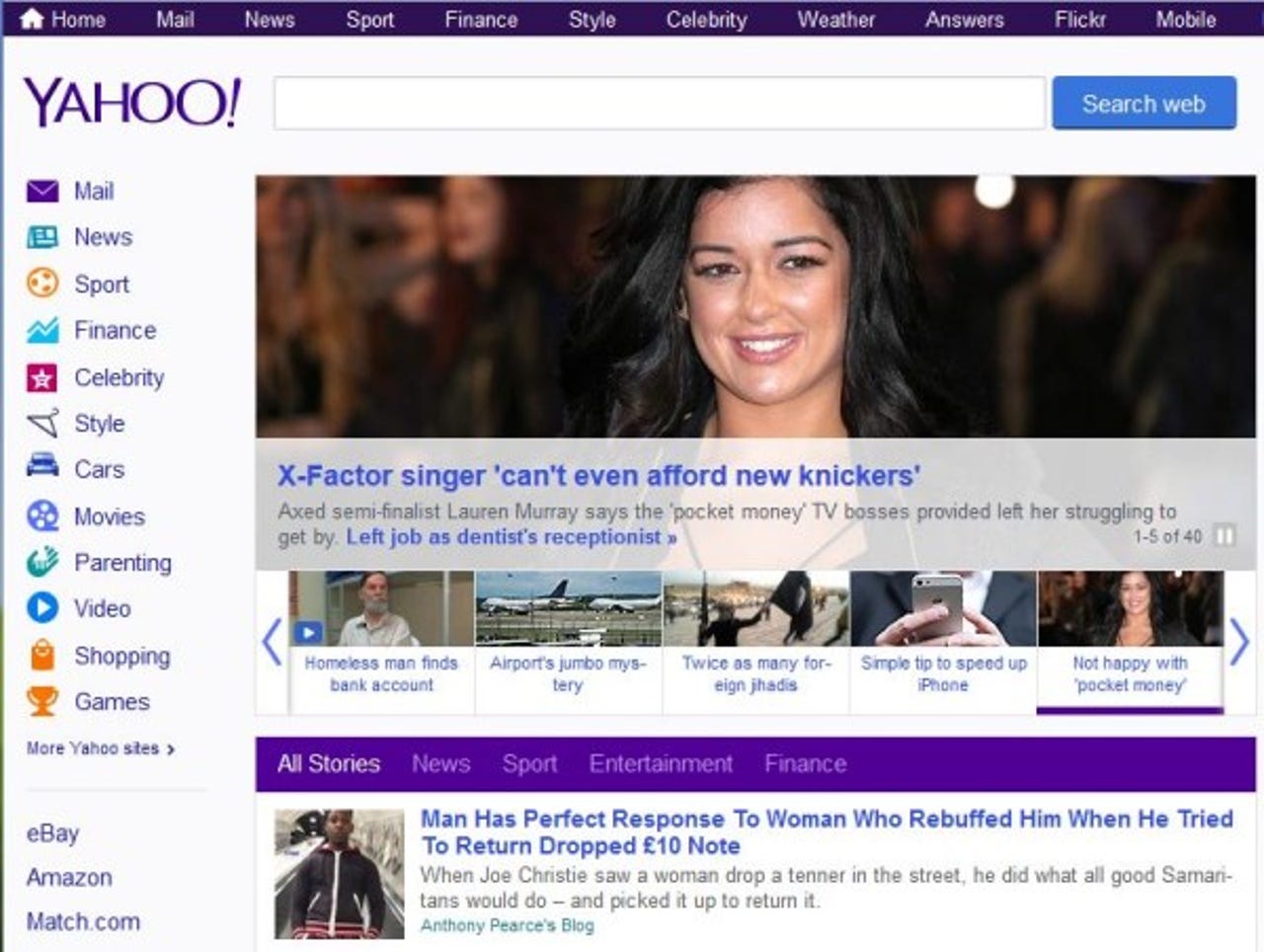Updated: Now is the time to break up Yahoo and sell off the bits


Yahoo's board spent three days last week trying to decide what to do with the company, apparently without success. This is not because there isn't a solution, but because the solution is too unpalatable. Basically, it means selling off or spinning off the core business: the website, the email service, Flickr, Tumblr, whatever.
The problem is that Yahoo's core business is worth billions of dollars less than nothing. The situation is even worse than when I wrote about it last year, because Yahoo's share price has fallen by a third over the past year.
Yahoo's negative value is, of course, inferred from its share price, which values the whole company at $33 billion. Now, Yahoo has a 15 percent shareholding in the Alibaba Group, worth around $34 billion, a shareholding in Yahoo Japan worth about $8 billion, plus almost $6 billion in cash. In other words, Yahoo has around $48 billion of obvious value, which is $15 billion more than the whole thing is worth.
The question for shareholders is how to extract that missing $15 billion.
Simple answer: just sell off the Alibaba and Yahoo Japan stakes.
Yahoo set up a separate company called Aabaco Holdings to hold its stakes in Alibaba and Yahoo Japan. However, America's Internal Revenue Service declined to rule on its tax position, so Yahoo has just scrapped that idea. It wasn't worth taking the risk on a deal that might involve paying more than $10 billion in taxes.
One of Yahoo's activist shareholders, Starboard Value, recently proposed a different solution: divest the core businesses and leave Yahoo holding the stakes in Alibaba and Yahoo Japan. This new Yahoo would be a shell with very few staff and no businesses to run, but it would certainly maximize the company's value to shareholders. Which is the name of the game.
Obviously this would be a resounding defeat for Yahoo's CEO, Marissa Mayer. But the fact is, she has failed to make a significant impact during her three years in charge. The product changes she's made, and the properties she has bought - such as Tumblr - have not increased Yahoo's turnover, which has actually declined.
Featured
Even Mayer's attempts to expand Yahoo's content businesses - such as hiring Katie Couric and David Pogue, and getting into TV-type production - have not been a success.
However, Yahoo's still-profitable core businesses could be spun off into a separate company, like Aabaco, or broken up and sold off for an extra $5 billion or even more. (Verizon bought AOL for $4.4 billion.)
Maybe somebody else could do a better job with Yahoo Mail, Messenger, Tumblr, Flickr, BrightRoll et al. The potential candidates include Verizon/AOL, AT&T, Disney, or even Microsoft.
Even if these core assets - including real estate and patents - were sold at knock-down prices, Yahoo would still bank more cash than Wall Street thinks they are worth at the moment, which is nothing. And if they continued to decline, it wouldn't be Yahoo's problem.
UPDATE: Yahoo published a statement this morning (Wednesday 9 December) stating that "we are suspending work on the Aabaco spin off" and "The Board will now evaluate alternative transaction structures to separate the Alibaba stake, focusing specifically on a reverse of the previously announced spin transaction." Thus:
In the reverse spin off, Yahoo's assets and liabilities other than the Alibaba stake would be transferred to a newly formed company, the stock of which would be distributed pro rata to Yahoo shareholders resulting in two separate publicly-traded companies.
This is a long way short of a break-up. It would presumably leave Mayer in charge of a NewCo that owns all Yahoo's business units, the Yahoo Japan shareholding, and cash. That means less money for shareholders. More details will be available after a conference call....